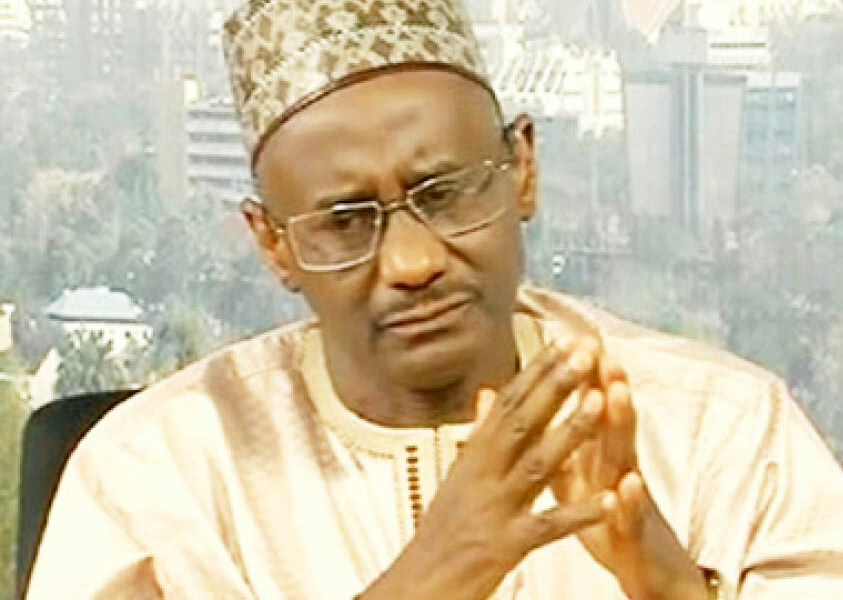Since the seemingly hastened reversion to the original national anthem of the Federal Republic of Nigeria with which she entered into independence in 1960, all hell has broken lose on the nation’s political space with certain partisan actors noisily expressing their tainted opinions, for and against, the national anthem change. There is no doubt that Nigerians are presently reeling in extreme economic hardship that was brought about by the “bitter but necessary corrective” policy options of the present administration. It is therefore to be expected that some would ask the inevitable question: how would the change of the national anthem put food on their dinner tables?
While such existential ‘stomach infrastructure ’ contention is understandable, it must also be accepted that certain abstract values rank higher than those of materialistic bread and butter concern and our supposed educated elite who are now making a bigger deal out of the anthem palaver ought to have known better.
Yes, people have the right to complain about the vandalistic mismanagement that is damaging Nigeria’s political process. What is more, it has become obvious to the people that the economic sacrifice that was said to be inevitable in order to pull out the nation from the ongoing mess is not being shared by the political class who have continued to live a life of unmitigated hedonism and fiscal gluttony – a wayward disposition that embarrassingly repudiates all the sonorous preachments about a “renewed hope” agenda. After all, a hungry man is an angry man.
The question which must still be asked however is how the change from the national anthem starting with the stanza “Arise O compatriots” to the original one with which Nigeria was ushered into independence in 1960, that starts with “Nigeria we hail thee!,” is enough to generate the high-tension decibels of cacophony that has greeted the development?
From all indications, the calls for the reinstatement of the old anthem (actually the original anthem) has been long and steady as it continually remained the darling of most Nigerians particularly in their moments of extreme emotions. The original anthem abandoned by Gen Obasanjo soon became the Aluta battle cry of Nigerian patriots and dissents, labour unions, students and even politicians whenever they nostalgically lament the inexplicable deterioration of the country.
It therefore smells and reeks of hypocrisy and indeed outright bad faith for those individuals who had always enthusiastically chanted the old national anthem, especially in their moments of nostalgic lamentation of “the good old Nigeria”, to now resort to making contrived noises and unceasingly crying over a change to something which they had always wanted and, indeed, canvassed for. A BBC news report aptly captured the exaggerative reactions of a section of the country thus: “Outrage as Nigeria changes national anthem.” It cited the protestations of some well-known Nigerians in tones and proses bordering on treasonable profanity.
For example, someone on X (Twitter) was quoted as saying that “changing the Nigerian national anthem written by a Nigerian, to one written by colonizers is a stupid decision and it’s shameful that nobody in the National Assembly thought to stand against it.” That claim, with all its patriotic pretensions, is historically flawed as the contestation for the lyrics of that national anthem was put up for both Nigerians and foreigners alike to compete for and with a cash prize attached to it and Lillian Jean’s presentation was eventually selected out of the thousands of entries made and adopted by a panel of judges comprising of Nigerians.
Mr. Omokri, the incessant online commentator, even scoffed at the idea that a foreigner would write an anthem for Nigeria and he arrogantly dared anyone to show him a national anthem written by a foreigner. But for his arrogance, a little research would have informed him of the fact that there are many national anthems written by foreigners.
A notable example is the national anthem of Uruguay which was written by the Argentine poet, Fransico Acuna; there is also Rabindranath Tagore, an Indian, who wrote the national anthems of both Bangladesh and Sri Lanka alongside that of India. So, it is not true, beyond preconceived negativism, to suggest that it’s an anathema to have a national anthem written by a foreigner.
There were also other rabid rejectionists like the former Education Minister Oby Ezekwesili who posted on her verified X handle that she would never sing the original national anthem of Nigeria, apparently trying to massage the ego of her former boss, OBJ, who actually made the initial change as was dictated by his expansive ego of “I know it all” which also led him to needlessly renamed several national agencies like ECN to NEPA, NBC to FRCN, etc. There is also the awful case of Aisha Yesufu who openly defied the national anthem by refusing to stand up for it at an official event that she was not forced to attend. Such defiant bad manners may give someone ephemeral notoriety but it is never a virtue.
While it is our civic responsibility as citizens to respect our national symbols like the flag and anthem, it is however my candid take that anyone is free under the constitutional principle of “Conscientious Objection” derivable from section 38 of the Constitution dealing with “religion and conscience” to not sing the national anthem. But an individual who refuses to sing it should also know that for every right or privilege there is a corresponding duty. We all saw how President Trump’s brazen attempt to intimidate and punish the Black American footballer, Colin Kaepernick, who insisted on taking the kneel instead of standing up for the US national anthem in support of the Black Life Matter (B.L.M.) movement eventually backfired as other sports men and women across the globe resolved to taking the knee as an act of universal support for racial equality. But Aisha is certainly not Kaepernick.
What really is the significance of a national anthem and why should we respect it? According to Joseph Zikmund 11, writing in the Australian Journal of Political History (1969), “politics, like religion, deals with questions at the very heart of man’s existence, emotional content of political social symbols tends to be quite great and the levels of abstraction rather high. Thus, the community, the polity, and society often are found represented either positively or negatively in the complex and most subtle forms of expression.”
Any follower of English football, for example, would readily appreciate how anthems are used to patriotically rally the troops. One would be setting himself out as an outcast, for example, at the Mersey Side stadium if he dare to sit out when the Liverpool team anthem of “You Never Walk Alone” is being rendered.
Therefore, how you treat your national anthem is indicative of your inner character traits. Citing Eric Voegelin, Zikmund further illustrated that “the self-illumination of society through symbols is an integral part of social reality and one may even say its essential part, for through such symbolization the members of a society experience it as ‘more than accident or convenience.’” Respecting an anthem of a nation, college or club is always as emotive as it is instinctive.
So, the fact that so much hullabaloos have accompanied the change in our anthem is certainly a symptom of a much serious national discomfiture. It is easy to conclude that the noise is really not about the national anthem itself but the expression of deeply held resentments by those who have come to the unfortunate partisan conclusion that nothing good can ever come out of the Tinubu administration, which, ironically, is actually wobbling on the saddle. They are the nattery nabobs of negativism being garbed as principled dissenters.
In all these, I found the contribution of Chief Mike Ozekhome, SAN, to be quite objective and convincing because he timeously reminded Nigerians that as a member of the 2014 National Confab, he moved for the restoration of the original 1960 anthem and the proposal was overwhelmingly carried and adopted. One then wonders why the same people who enthusiastically embraced and indeed sang that anthem emotionally are now having issues with its restoration. The simple answer is that the Tinubu administration does not seem to have credible and effective political communication strategy coupled with the fact that some of its appointees do not command sufficient public trust due to the peculiar reason for their engagement which is simply “job for the boys”, thereby morally ceding the narrative to the inconsolable domestic MAGA-like election results disputants.










